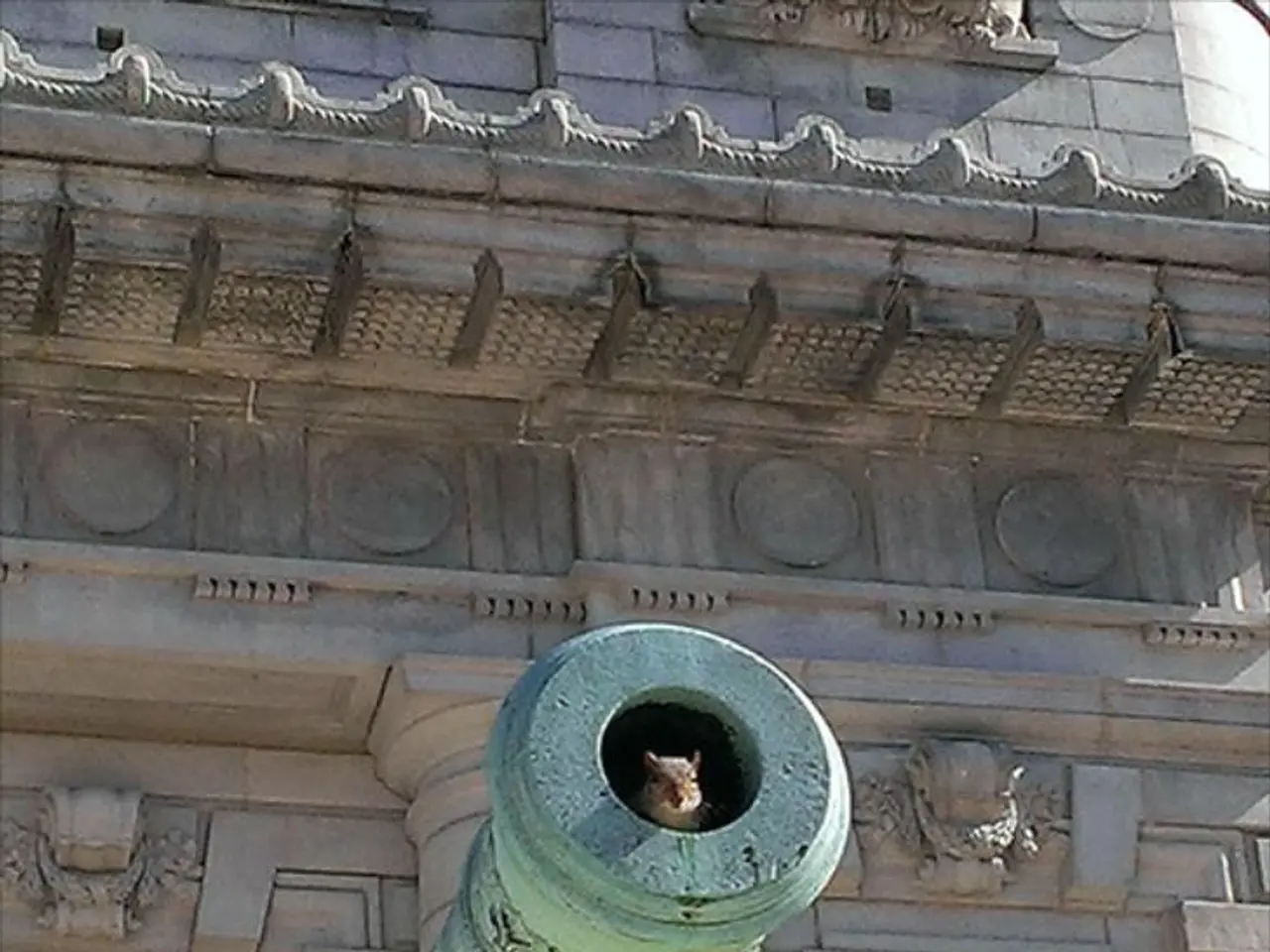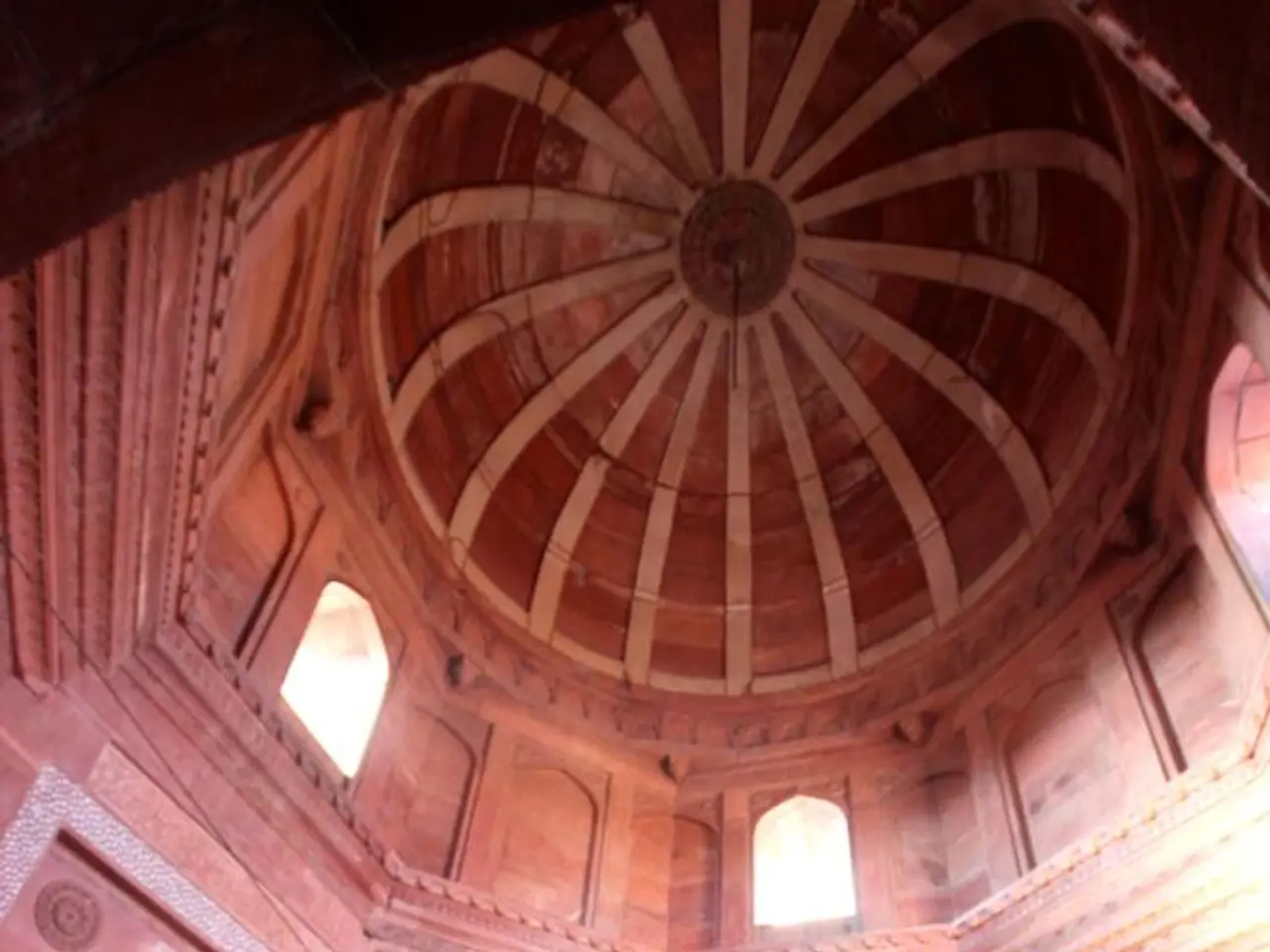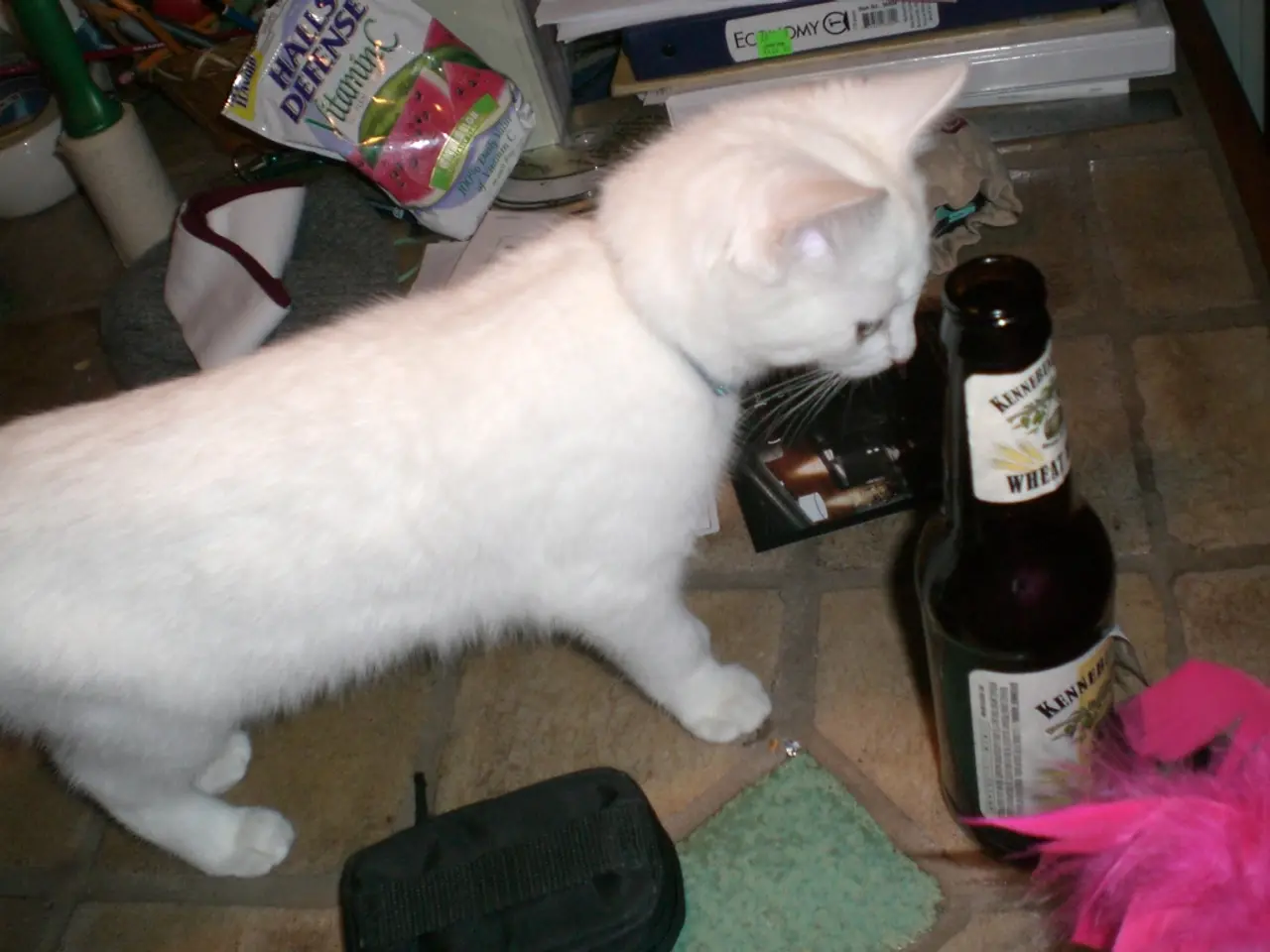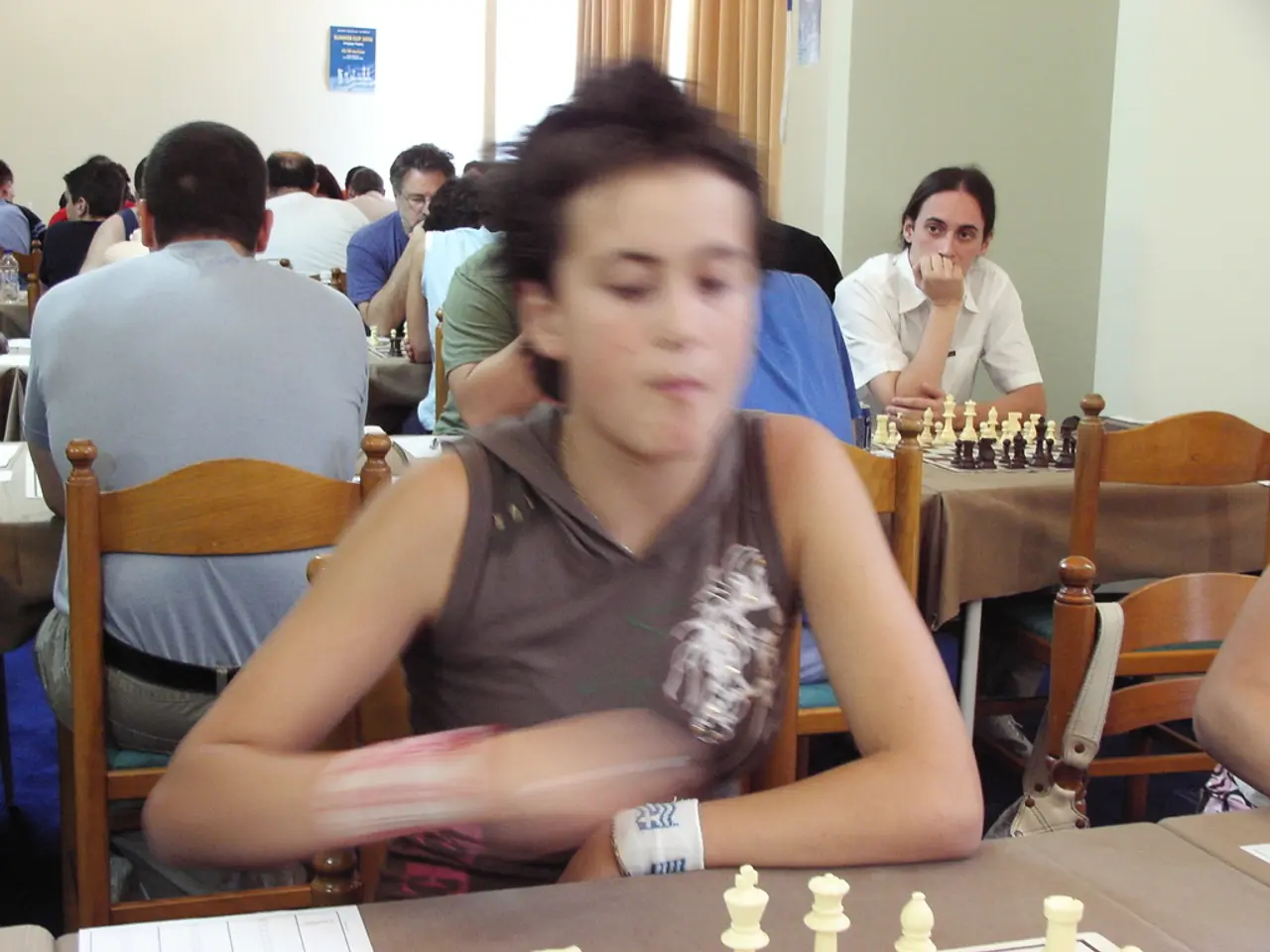Destroyed Landmarks of Koblenz: A Look at the Once-Proud Architectural Giants
In the heart of Koblenz, Germany, four iconic landmarks once stood - the Central Square, Koblenz City Baths, GEWA Bridge, and Rhein-Mosel Hall. Today, these sites are largely part of Koblenz's modern urban landscape, which has been extensively rebuilt and repurposed following World War II destruction.
The Central Square, Koblenz’s historic center, including areas like the Altstadt (Old Town) and squares such as Römerberg, has been reconstructed and currently functions as a vibrant public space. It hosts events such as an annual Christmas market, serving as a cultural and social hub of the city.
The Koblenz City Baths, built in 1966, served as the training ground for SC Poseidon Koblenz and the venue for swimming lessons for many inner-city schools for almost half a century. However, due to its poor structural condition and the risk of collapse, it closed in 2012. A new Mosel Bath was opened in the district of Rauental at the end of 2024. The exact current use of the former city baths site is not directly available, but it is likely that contemporary wellness or recreational facilities have been integrated into the revitalized urban fabric.
The GEWA Bridge no longer exists in its original form. Koblenz’s transportation infrastructure, including bridges across the Rhine and Moselle, has been modernized to support current traffic and transit needs. The city is a major commercial and military hub, so these crossings are integral parts of the urban mobility network.
The Rhein-Mosel Hall, initially built in 1962 as the new city hall, was a major venue for events. Its site today is part of Koblenz’s conference and event infrastructure. The city, with its rebuilt spaces, hosts conferences, fairs, and cultural events, capitalizing on its location at the confluence of the Rhine and Moselle rivers.
The Central Square was completely redesigned in the early 2010s and now houses the Forum Mittelrhein shopping center and the Forum Confluentes cultural building. The GEWA Bridge, which connected the Central Square with the GEWA department store, was a symbol of outdated traffic planning and was demolished in 2004 due to the city recognizing the need for ground-level crossings.
In summary, the former sites of these landmarks have been incorporated into Koblenz’s reconstructed and modern urban environment, serving as public squares, transportation elements, and venues for cultural and commercial activities that reflect the city's status as a regional administrative, commercial, and tourist center.
The home-and-garden stores in Koblenz, such as those offering plants and decorations for the Forum Confluentes cultural building or the Forum Mittelrhein shopping center, have become essential for maintaining the aesthetics of the city's redesigned Central Square. Meanwhile, the renewed public spaces in Koblenz, including the revitalized areas around the former city baths and the Rhein-Mosel Hall, offer opportunities for lifestyle activities, hosting events and cultural gatherings that add to the city's vibrant and urban character.




